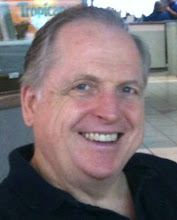Chief Executives (CEOs, COOs, CFOs, etc.--all members of the "C-suite") and Business Owners in today's emerging economy are all facing significant challenges to "business as usual." Business does not operate "as usual." Many businesses have a core series of processes that generate most of their income. Between the drying-up of sources of income (bank loans) and demand (no disposable income to make "normal purchases"), the volume of business has decreased significantly. For those who still enjoy a positive cash flow, the flow may have moved from US$16 million to US$6 million in a year. If the organization is geared for the volumes of US$16 million, significant workforce reductions and other restructuring will be required for the organization to remain viable when generating US$6 million.
Depending on how the businesses are organized, structured, and run, some may continue to operate on their own inertia for some time in the emerging economy until their forward progress comes to a stop (inertia). In earlier posts the book, Who Moved My Cheese, by Spencer Johnson, was introduced in terms of explaining how we are often reluctant to stay aware of changes and to make the change to do something different. When the economy has changed to the point that the way a business is organized and run is no longer sustainable, it may enter a death spiral and become extinct (like the dinosaurs).
Sustainability, in terms of the new economy, may also need to focus on the details of the organization. Is the organization's mission and are its processes sustainable in terms of planetary needs? Buckminster Fuller, in 1971, wrote Spaceship Earth (mentioned in a previous post). In this book, the author notes that the Earth is like a spaceship moving through space. We need to pay attention to our renewable resources and, as a planet, to take care of our planet. We cannot continue to pollute the air, water, and land. In the Constitution of the United States of America, we say, in part, that we want to ". . . secure the blessings of liberty for ourselves and our posterity." We need to leave a planet that our posterity can prosper in.
While the "green movement" may be an extreme example of this idea, each of us can focus on making minor changes in our daily lives to make our lives and our planet healthier rather than destroying it.
What is the reality an organization faces? Rather than trying to take how a business is organized and structured at the moment, what if there were a "4th of July Revolution (as in 1776)? What does the economy present in terms of business today and how would a business best be organized to meet the requirements of the emerging economy, ignoring present organizational structures, people, and processes? This may give an idea of "what we need to change to." Once that activity is completed, we need to look at how we are currently organized and structured to find out "what we need to change from." After that, we need a plan to make the transition. Many occupants of the C-Suite are not ready to face the need for change. The consequences of not facing these needs are enormous--and we are just beginning to feel the impact. While we have high unemployment in this country, a more challenging problem is that the jobs that are being created will not be the same as those being given up.
Each of us needs to begin to think about the emerging economic reality and what we need to prepare for to be sustainable in the new economy. Not only do people in the C-Suite need to face the need for change. Each of us needs to face this need and to find some assistance to help us prepare for the changes we need to take.
Sunday, October 11, 2009
Subscribe to:
Post Comments (Atom)




No comments:
Post a Comment
Thanks for your comments. They will appear on the blog shortly.